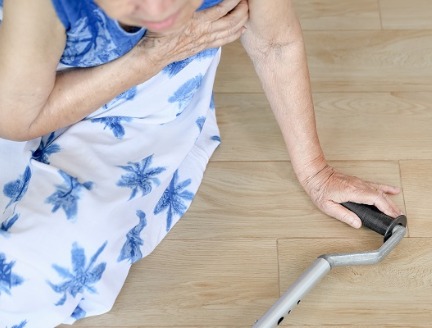


Social determinants play a factor in whether a person with heart disease adapted the necessary measures, including wearing masks and working from home, to prevent the spread of COVID-19, discovered Houston Methodist investigators.
Where someone lives, their level of education and their financial stability all played a role in someone’s willingness to follow COVID-19 guidelines, something that has been a challenge in health care for a long time.
The study, led by Kobina Hagan, MBChB, MPH, a postdoctoral fellow at Houston Methodist Research Institute, was based on data from the COVID-19 Household Impact Study. That study assessed surveyed more than 25,000 adults in the U.S. for preventive strategies along with health and sociodemographic factors. From that, 2,000 respondents reported having a history of heart disease, heart attack or stroke.
According to the Centers for Disease Control and Prevention (CDC), heart disease increases the risk of severe illness from COVID-19.
The survey respondents were grouped into quartiles that reflected social risk factors based on income and financial security, employment, education, health insurance status, food insecurity and neighborhood quality. The largest gap was seen those who reported as being able to work from home or cancel or postpone work activities. Those with the greatest social adversity were 46% less likely to report flexibility at work, were 31% less likely to engage in all social-distancing measures and 17% less likely to engage in all personal protective measures (wearing a face mask, washing hands and keeping a 6-foot distance from those outside their household) compared to those with the most favorable social risk profile. These differences remained significant even after accounting for demographics and comorbidities.
The study was conducted before the vaccines were available when public health experts were recommending social distancing and other measures as the primary method to slow the virus’ spread. The survey did not assess the reasons a person did not adapt the mitigation measures.
Hagan said many of the factors reflect circumstances that are often outside of a person's control, such as their ability to work from home. For measures that involve more personal choice, he suggested that low health literacy may play a role among disadvantaged groups.

I think we are repeating the same mistakes and expecting better results," Hagan said. "I hope we can come to a point where we as a society take social disparities into account in our decision making. We have to prioritize these socially disadvantaged individuals in our public policy programs, including vaccine delivery, to reduce the disparities in COVID-19 risk and outcomes.

Kobina Hagan, MBChB, MPH
Postdoctoral fellow at Houston Methodist Research Institute
The study will be reported at the American College of Cardiology’s 70th Annual Scientific Session, May 15-17, 2021.
This study will be simultaneously published in Circulation: Cardiovascular Quality & Outcomes. Hagan will present the study, "Social Determinants of Health Disparities for COVID-19 Mitigation Measures Among Adults with Cardiovascular Disease in the United States," on Saturday, May 15, at 8:30 a.m.
Erin Graham, May 2021
Related Articles









